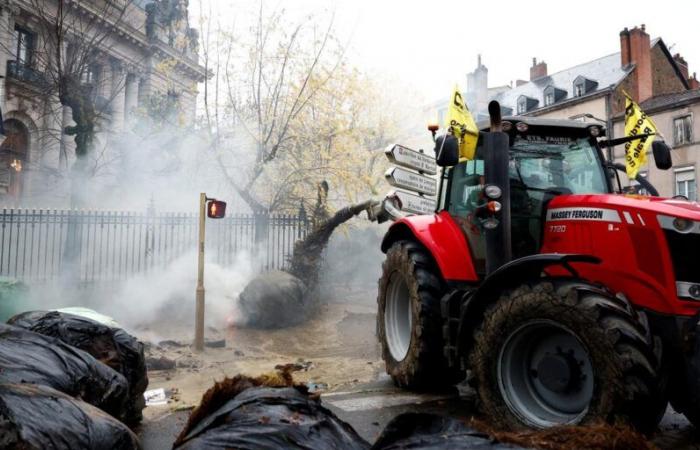
Hang in there: European Commission is the sole negotiator of commercial agreements under the treaties on the European Union, after having received a mandate from the Member States. A first agreement was concluded in 2019, but never ratified. The adopted mandate cannot in principle be modified during discussions, recalled this week the Hungarian presidency of the Council of the European Union, which brings together the Twenty-Seven at ministerial level.
Once the Commission judges that the negotiation is complete with Mercosur, it places a draft text on the Council table for agreement. The European Commission has two options. She can either submit her draft agreement as is, or split it into two parts.
In the first caseit will be necessary for this free trade treaty to be ratified by the 27 national Parliaments, because it contains elements of national competence, such as the protection of investments. In the second casethe treaty is split into two parts, including a strictly commercial part, the most important, because it details all the measures concerning commercial exchanges between the two blocs, from industry to services, including agriculture.
This possibility, denounced by France, as contrary, according to it, to the mandate given by the Twenty-Seven to the Commission, allows adoption of the text by the Council of the EU by qualified majority.
The Commission has not made its decision known, but it is likely that it will choose to split its text, and will therefore opt for a qualified majority vote in order to speed up the decision-making process, say several diplomatic sources.
Pour block the decisionA blocking minority is needed at the time of the vote of the Twenty-Seven. Qualified majority voting provides that a text is adopted if 55% of member states, or 15 countries, representing at least 65% of the population, vote in favor. To prevent this adoption, at least four countries must be brought together. But that’s not enough. These must be countries with enough populations to prevent supporters of the deal from reaching 65% of the EU population.
The France must therefore rally three other countries which cannot only be Malta, Cyprus or Luxembourg. Poland and Austria have expressed their opposition in the past, but the pressure from the defenders, Germany and Spain in the lead, is very strong.
The treatysplit or not, must be ratified by the European Parliament. In this forum, France has another possibility of blocking the agreement, as MEPs are so divided. The overwhelming majority of French MEPs, all political tendencies combined, are against. They can count on a large number of their colleagues from the radical left and environmentalists, but things are more unclear on the center, right and far right.





